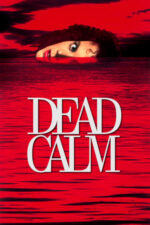Lost at Sea: More Than Just Splintered Wood – Exploring Shipwrecks on Film
Isn’t there something inherently captivating about shipwrecks? Beyond the immediate drama of disaster, they represent a collision of human ambition and nature's raw power, a stark reminder of our vulnerability. And cinema has been obsessed with them for decades, offering us everything from thrilling survival stories to profound meditations on morality and loss.
The image itself – that skeletal frame emerging from the depths, or scattered debris bobbing on the waves – is instantly evocative. Think about Robinson Crusoe, for example. While not a shipwreck film in the traditional sense, it’s born from one: the devastating storm that leaves our protagonist stranded. The isolation he experiences isn't just physical; it's a consequence of being utterly disconnected from civilization, adrift in a world governed by different rules. It’s a powerful visual metaphor for confronting your own limitations and finding strength you never knew you possessed.
Then there's The Wreck of the Mary Deare, which I always find particularly compelling. The sheer stubbornness of its protagonist – choosing to stay with a sinking ship, fighting against overwhelming odds – speaks to a deep-seated need for redemption. It’s not just about survival; it’s about reclaiming his honor in the face of injustice. It's a gritty, almost claustrophobic film that really gets under your skin.
Shakespeare understood the symbolic weight of shipwrecks too. The Tempest uses the storm as a catalyst for revenge and ultimately, forgiveness. The island itself becomes a stage for exploring themes of power, justice, and the transformative potential of human connection – all set against the backdrop of a devastating maritime event.
Of course, we can’t talk about shipwrecks without acknowledging the more sensational side of things! Raging Sharks leans into pure spectacle, tapping into our primal fear of the unknown lurking beneath the waves. It's pulpy fun, sure, but even these films often touch on anxieties about humanity's hubris and our tendency to disturb forces beyond our control.
And recently, we’ve seen shipwrecks re-examined through a lens of tragedy and investigation, as exemplified by Implosion: The Titanic Sub Disaster. It highlights how the allure of exploration can blind us to potential dangers, and raises uncomfortable questions about accountability when things go horribly wrong.
Shipwreck narratives aren't just about disaster; they’re about resilience, redemption, and our place in a vast and often unforgiving world. They offer a unique window into the human condition – sometimes terrifying, always fascinating. So next time you’re looking for something to watch that will really make you think (and maybe hold your breath!), consider diving into the cinematic depths of a shipwreck story. You might be surprised by what you find.







































